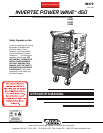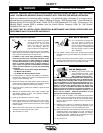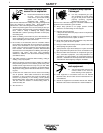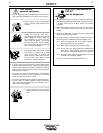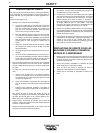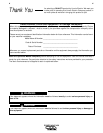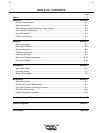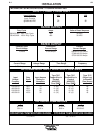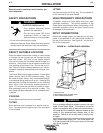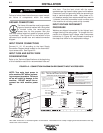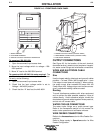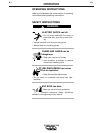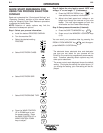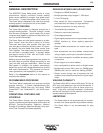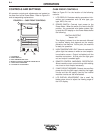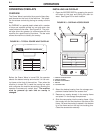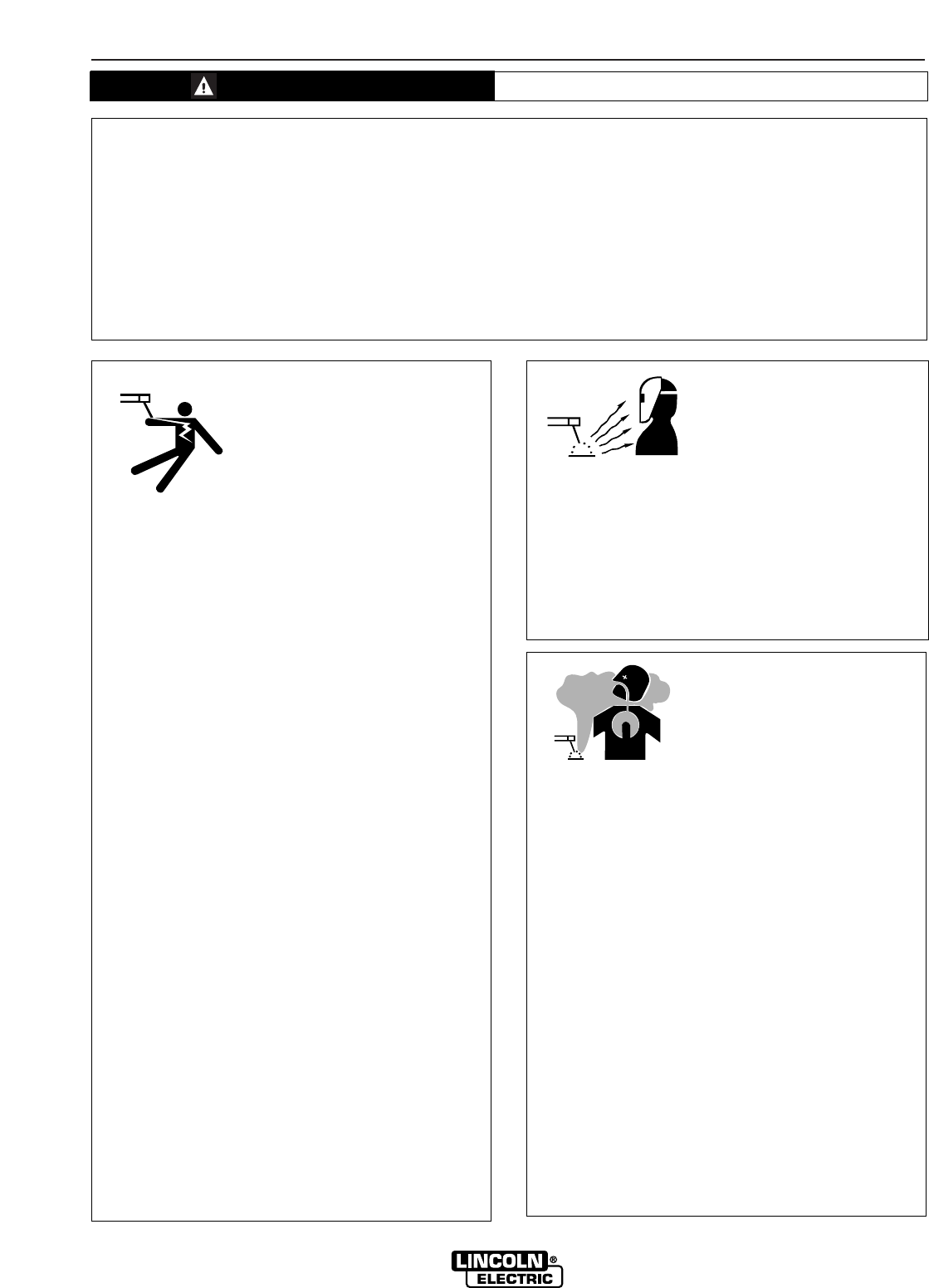
SAFETY
i i
POWER WAVE 450
WARNING
PROTECT YOURSELF AND OTHERS FROM POSSIBLE SERIOUS INJURY OR DEATH. KEEP CHILDREN
AWAY. PACEMAKER WEARERS SHOULD CONSULT WITH THEIR DOCTOR BEFORE OPERATING.
Read and understand the following safety highlights. For additional safety information, it is strongly recom-
mended that you purchase a copy of “Safety in Welding & Cutting - ANSI Standard Z49.1” from the American
Welding Society, P.O. Box 351040, Miami, Florida 33135 or CSA Standard W117.2-1974. A Free copy of “Arc
Welding Safety” booklet E205 is available from the Lincoln Electric Company, 22801 St. Clair Avenue,
Cleveland, Ohio 44117-1199.
BE SURE THAT ALL INSTALLATION, OPERATION, MAINTENANCE AND REPAIR PROCEDURES ARE
PERFORMED ONLY BY QUALIFIED INDIVIDUALS.
ARC WELDING can be hazardous.
ELECTRIC SHOCK can kill.
1.a. The electrode and work (or ground)
circuits are electrically “hot” when
the welder is on. Do not touch
these “hot” parts with your bare
skin or wet clothing. Wear dry,
hole-free gloves to insulate hands.
1.b. Insulate yourself from work and ground using dry insulation.
Make certain the insulation is large enough to cover your full
area of physical contact with work and ground.
In addition to the normal safety precautions, if welding
must be performed under electrically hazardous condi-
tions (in damp locations or while wearing wet clothing;
on metal structures such as floors, gratings or scaffolds;
when in cramped positions such as sitting, kneeling or
lying, if there is a high risk of unavoidable or accidental
contact with the workpiece or ground) use the following
equipment:
• Semiautomatic DC Constant Voltage (Wire Welder).
• DC Manual (Stick) Welder.
• AC Welder with Reduce Voltage Control.
1.c. In semiautomatic or automatic wire welding, the electrode,
electrode reel, welding head, nozzle or semiautomatic weld-
ing gun are also electrically “hot”.
1.d. Always be sure the work cable makes a good electrical con-
nection with the metal being welded. The connection should
be as close as possible to the area being welded.
1.e. Ground the work or metal to be welded to a good electrical
(earth) ground.
1.f. Maintain the electrode holder, work clamp, welding cable
and welding machine in good, safe operating condition.
Replace damaged insulation.
1.g. Never dip the electrode in water for cooling.
1.h. Never simultaneously touch electrically “hot” parts of elec-
trode holders connected to two welders because voltage
between the two can be the total of the open circuit voltage
of both welders.
1.i. When working above floor level, use a safety belt to protect
yourself from a fall should you get a shock.
1.j. Also see items 4.c. and 6.
ARC RAYS can burn.
2.a. Use a shield with the proper filter
and cover plates to protect your
eyes from sparks and the rays of
the arc when welding or observing
open arc welding. Headshield and
filter lens should conform to ANSI
Z87.1 standards.
2.b. Use suitable clothing made from durable flame-resistant
material to protect your skin and that of your helpers from the
arc rays.
2..c. Protect other nearby personnel with suitable, non-flammable
screening and/or warn them not to watch the arc nor expose
themselves to the arc rays or to hot spatter or metal.
FUMES AND GASES
can be dangerous.
3.a. Welding may produce flames and
gases hazardous to health. Avoid
breathing these fumes and gases.
When welding, keep your head
out of the fume. Use enough ventilation and/or exhaust at the
arc to keep fumes and gases away from the breathing zone.
When welding with electrodes which require special ventila-
tion such as stainless or hard facing (see instructions on con-
tainer or MSDS) or on lead or cadmium plated steel and other
metals or coatings which produce highly toxic fumes, keep
exposure as low as possible and below Threshold Limit
Values (TLV) using local exhaust or mechanical ventilation. In
confined spaces or in some circumstances, outdoors, a res-
pirator may be required. Additional precautions are also
required when welding on galvanized steel.
3.b. Do not weld in locations near chlorinated hydrocarbon
vapors coming from degreasing, cleaning or spraying opera-
tions. The heat and rays of the arc can react with solvent
vapors to form phosgene, a highly toxic gas, and other irri-
tating products.
3.c. Shielding gases used for arc welding can displace air and
cause injury or death. Always use enough ventilation, espe-
cially in confined areas, to insure breathing air is safe.
3.d. Read and understand the manufacturer’s instructions for this
equipment and the consumables to be used, including the
material safety data sheet (MSDS) and follow your employ-
er’s safety practices. MSDS forms are available from your
welding distributor or from the manufacturer.
3.e. Also see item 7b.



